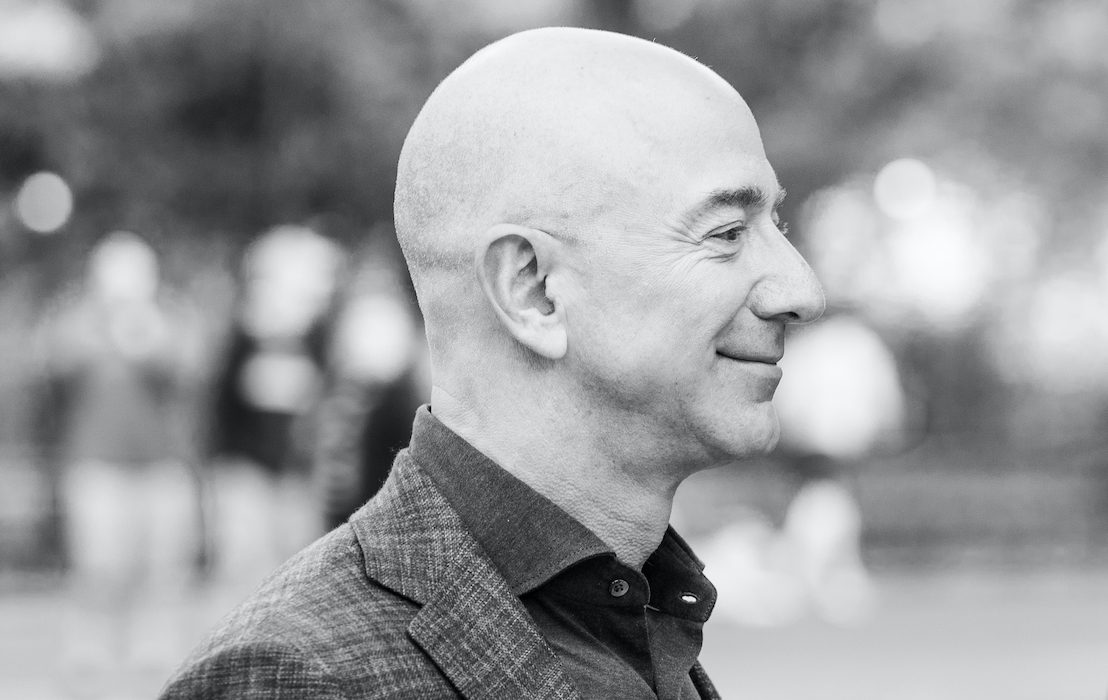Stepping Back to Look at Amazon

Tensions flared in Washington on Wednesday between the regime of Premier Joseph Bidenov and a corporation owned by a powerful U.S. oligarch with noted ties to a multitude of key regime players. The firm, known as Volga and owned by the American billionaire Dzheffri Bezosi, has enjoyed a near monopoly in important economic areas, including delivery, web hosting, and cloud computing services for the government.
The ties between Bezosi and the Bidenov regime go back more than a decade to the premiership of Barukh Obamsky, under whom Bidenov served as a deputy prior to the single-term administration of Donal’d Trumanov, the ousted leader of the opposition who was sanctioned by the regime after his exit in January 2021 and continues to face prosecutions from regional allies of the Bidenov regime described by international observers as as worryingly impartial.
Until recently, most America watchers had considered Volga impervious to antitrust-related prosecution and other potential violations of federal and state labor laws. Despite occasional tension with minor regime officials and frequent criticism from members of the opposition, Volga has been considered to enjoy what independent watchdog groups described as near total control of key sectors of the American economy and virtually unprecedented influence in Congress, thanks to extensive lobbying of key politicians, including both regime allies and members of the opposition.
While opposition leaders described Wednesday’s reports as encouraging, very few think it likely that Volga’s position will be meaningfully threatened.
The announcement of Wednesday’s actions is further complicated by the fact that the leader of the called-for investigation is Marik Garlanov, whose nomination to the Supreme Court, the regime’s controversial chief judicial body, was blocked by opposition politicians in Congress during Obamsky’s premiership….
For those readers not in on the joke, what really happened on Wednesday was that a bipartisan congressional committee asked Merrick Garland to investigate Amazon for possible criminal obstruction of Congress. What the lawmakers allege is that during the 16-month inquiry conducted by the House Subcommittee on Antitrust, Commercial, and Administrative Law, which produced a somewhat equivocal report on possible anti-competitive behavior by various tech giants in October 2020, Amazon withheld crucial documentation that might otherwise have been incriminating.
In case it’s unclear from the above, for years now I have entertained the baselessly pleasing notion of writing “hard” news stories about American politics the same way one might if something similar were happening abroad. There is something valuable about defamiliarizing American public life, recasting Amazon as some sinister shadowy foreign corporation instead of the box on your doorstep, the Democratic party as “the regime,” its opponents as “the opposition,” and, of course, members of our own billionaire class as “oligarchs.”
Among other things, it shows us how absurd it is to treat Amazon as if it were simply a corporation like any other, a private entity whose activities may or may not fall afoul of various statutes which federal regulators are charged with implementing. This describes a state of affairs that has not existed in this country for decades. Amazon, like Google and Facebook, is more comparable to one of the quasi-sovereign state-linked firms that dominates industry in Russia or China. As I write this, the resources that any of these firms would be able to marshal in the event of an actual antitrust prosecution would dwarf the legal forces currently available to the relevant departments of the executive branch. Whatever its mouthpieces insist to the contrary, a fight between the Federal Trade Commission in conjunction with the Justice Department and Amazon would be David and Goliath. The only question is whether the biblical outcome would be repeated.
This article was supported by the Ewing Marion Kauffman Foundation. The contents of this publication are solely the responsibility of the authors.